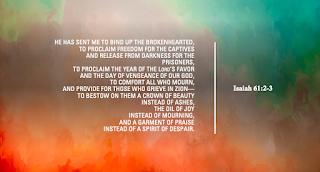It's human nature to rearrange truth so that it fits comfortably within self-made, humanistic worldviews. The temptation to do this unfortunately remains after we become Christ-followers, luring us to water down and alter parts of Scripture that challenge our ideals of the Christian life and what we think it should resemble. One area that has been greatly distorted throughout history is Jesus' teaching about the call and cost of discipleship -- to lose our lives for his sake, which he says involves taking up our cross and following him wherever he calls us to go (Lk 27:33).
What exactly does he mean by that? I remember wrestling with this question as a new believer in my 20's when confronted with Jesus's call to discipleship and the opposing view among many Christians that he was not actually calling for a radical surrender or whole life commitment -- just a heart that believed in him. The problem with this mindset was that it was diametrically opposed to the teaching of all of Scripture, which clearly showed from the time of Adam and Eve that true belief or trust was defined by a surrender to God's plans and desire to walk in obedience to him. This same pattern of trusting obedience was spotlighted in the lives of the great saints in Hebrews 11, beginning with Abel and his offer of a right sacrifice to God all the way to the prophets -- who offered up their very lives for the sake of God's call and Kingdom purposes. There was no mention here of a "middle crowd" that lived out their own plans and went about life like the rest of the world. In fact, Jesus said that anyone living like this would not be present in the Kingdom of God (Matt 7:22-24).
Since Jesus is Lord over all creation and orders the events of the universe (Col 3:1; Heb 1:3), it's only logical that as Lord of our lives he has distinct and specific plans for us. Before the apostle Paul encountered the risen Christ on the road to Damascus, he went about life following the desires of the flesh, pursuing selfish ambition and seeking to make a name for himself. We might say he was living the Israelite religious leaders dream. But when he encountered the Lord, everything changed. He traded his plans for the Lord's, going where Jesus told him to go and doing what he told him to do. Through God's gift of saving faith (Eph 2:8-9), Paul was delivered from the kingdom of darkness to the kingdom of light and from a man-centered life to one that was Christ-centered and characterized by whole hearted devotion to his new King and Lord (Col 1:13).
Counting the Cost. Jesus knew his disciples and future followers would have difficulty surrendering their lives, along with goals and plans for experiencing what they considered a "good life." He encouraged them to "count the cost" before committing to follow him and gave the practical examples of building a tower and going out to war to illustrate the seriousness of the matter (Lk 14:28-33). In both scenarios, he showed the logical wisdom and necessity of carefully considering the cost before making a commitment to such all-encompassing tasks. He then took his point up a notch to show that the cost of discipleship far exceeded the commitment to going to battle or completing a building project when he said, "Those of you who do not give up everything you have cannot be my disciples" (14:33).
Taking up our cross. On the heels of calling his disciples to cross bearing, Jesus followed with the imperative, "For whoever wants to save his life will lose it, but whoever loses his life because of me shall save it" (Lk 9:24). When Christ calls us to take up our cross he doesn't mean to carry some specific burden of our lives like a sickness or a troublesome relationship, though these are sometimes trials we must endure. Instead, he means that we're to live lives of daily submission to his loving authority as our Lord and our God (Jn 20:28). This kind of cross bearing is not holding onto personal belief or a decision we've made in one hand while clinging to our lives and agendas in the other but is a complete surrender of all that we are and have to his Lordship so that we can experience his resurrection life and bring him glory (Rom 6:5, 12:1-2; 2 Cor 4:11).
The good life. One of my favorite movies is
Free Burma Rangers, which documents the lives of the Eubank family and God's call on their lives to ministry among the war-torn people of Burma. As they travel as a family into villages to rescue wounded and frightened families from military assault, they often wear t-shirts with the words, "The Good Life" to show that they've chosen by faith to trust that God's call to Lordship is the way of life and blessing as he promises (Jn 14:6). This declaration of trust, accompanied by their commitment to following the Lord wherever he calls, is evidence of the living faith that Jesus and the other NT writers described (Jas 2:18).
While we may not be called to such a radical lifestyle as the Eubanks, we can be certain that Jesus' call on our lives will take us in a direction that looks very different from the world and its pursuits and will be Kingdom focused (Matt 6:33). As those who have been bought with a price and belong to the King of glory (1 Cor 6:20), we'll no longer live for ourselves but for Christ and his purposes (2 Cor 5:15). The cost and sacrifice is great, but the treasure of receiving life in Christ far surpasses it! In the words of Jim Elliott, "He is no fool who gives what he cannot keep to gain what he cannot lose."



